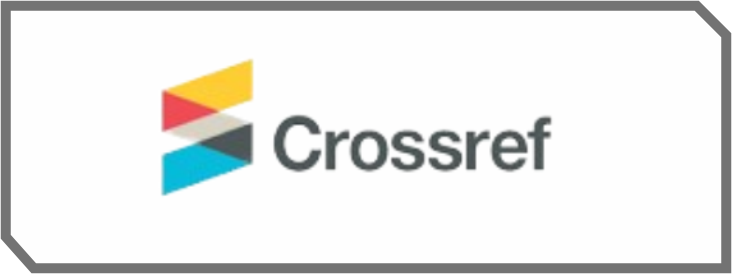The Philosophy of Belom Bahadat in the Perspective of the Qur'an as a Solution to the Economic Contestation in Central Kalimantan
Keywords:
Belom Bahadat, Contestation, Economic Issues, Perspective of the Qur'anAbstract
The economic contest between companies and the community in Seruyan Regency, Central Kalimantan, is intensifying along with the rapid development of the palm oil plantation industry. Many large companies control vast lands, while local communities are often marginalized and do not receive proportional economic benefits. This inequality is caused by company policies that prioritize financial gain, often neglecting the rights of the community when plantation yields are harvested. In this situation, the Belom Bahadat philosophy adhered to by the Dayak people can be a relevant solution. This study aims to explore the relevance of the Belom Bahadat philosophy from the perspective of the Qur'an as a solution to this economic contest. Based on thematic analysis, the study finds that the principles contained in Belom Bahadat, such as deliberation for consensus, social justice, togetherness, and tolerance, can offer mutually beneficial solutions between companies and the community. Furthermore, the findings suggest that the principle of deliberation can serve as a tool to negotiate fair resource distribution, while justice ensures that the rights of all parties are respected. The value of togetherness strengthens collaboration between companies and the community, while tolerance opens space for compromises that maintain harmonious relations. The integration of Qur'anic values regarding sustainable and fair natural resource management further strengthens the relevance of this philosophy in addressing economic inequality in Central Kalimantan. It is hoped that by applying these principles, sustainable mutual welfare and a more just and stable relationship between companies and the community can be achieved.
References
Abubakar, M. (2010). Falsafah hidup budaya Huma Betang dalam membangun kerukunan hidup umat beragama di Kota Palangka Raya. Malang: Aditya Media Publishing.
Ahmad, M. (2020). Al-Qur’an dan wawasan ekologi. Al-Dzikra: Jurnal Studi Ilmu Al-Qur’an dan Al-Hadits, 14(2), 333–358. https://doi.org/10.24042/al-dzikra.v14i2.7442
Arlina, R. P., Alvionita, E., Humairoh, M. S., Pane, D., & Hasibuan, S. H. (2023). Toleransi antar umat beragama dalam perspektif pendidikan Islam. Al-Ubudiyah: Jurnal Pendidikan dan Studi Islam, 4(1), 44–51. https://doi.org/10.55623/au.v4i1.143
Bahri, R. (2023). Mengembangkan kompetensi abad 21 dalam pendidikan Islam: Telaah perspektif Al-Quran dan Hadis. Fakta: Jurnal Pendidikan Agama Islam, 3(1). https://doi.org/10.28944/fakta.v3i1.1190
Dakir. (2017). Pengelolaan budaya inklusif berbasis nilai Belom Bahadat pada Huma Betang dan transformasi sosial masyarakat Dayak Kalimantan Tengah. Religió: Jurnal Studi Agama-Agama, 7(1), 28–54. https://doi.org/10.15642/religio.v7i1.707
Hamdi, S., & Efendi, S. (2022). Konsep keadilan delik pembunuhan dalam hukum positif Indonesia dan hukum Islam. MAQASIDI: Jurnal Syariah dan Hukum, 144–159. https://doi.org/10.47498/maqasidi.vi.1558
Istiani, M., & Purwanto, M. R. (2019). Fiqh bi’ah urgensi teologi Al-Quran. At-Thullab: Jurnal Mahasiswa Studi Islam, 1(1), 27–44. https://doi.org/10.20885/tullab.vol1.iss1.art2
Khoirudin, M. Z., Erawati, D., & Syamsuri. (2021). Hegemoni perusahaan perkebunan kelapa sawit terhadap masyarakat Kalimantan Tengah dalam menyelesaikan sengketa lahan. Proceedings of Palangka Raya International and National Conference on Islamic Studies (PINCIS), 1(1), 19–32.
Lampe, Y., Karlian, E., & Sakman. (2017). Integrasi nilai kearifan lokal Dayak Ngaju. Jurnal Pendidikan, 18(2), 115–120.
Librawan, R., Gunawan, A., & Mugnisjah, W. Q. (2021). Konsep ecodesign lanskap jalan arteri Kota Palangka Raya berbasis kearifan lokal budaya suku Dayak Ngaju. Tataloka, 23(1), 12–38. https://doi.org/10.14710/tataloka.23.1.12-38
Muhjad, M. H., Fahmanadie, D., & Mursalin, A. (2023). Pendampingan advokasi masyarakat dalam mempertahankan hak atas hasil perkebunan sawit plasma di Desa Keladan Kecamatan Candi Laras Utama Kabupaten Tapin. Jurnal Pengabdian ILUNG (Inovasi Lahan Basah Unggul), 3(1), 163. https://doi.org/10.20527/ilung.v3i1.9544
Natalia, D., Munte, A., Tarantang, J., Kurniawan, R., & Pelu, I. E. A. S. (2024). Dinamika budaya Belom Bahadat: Studi kasus masyarakat Dayak di Palangka Raya dalam perspektif Max Weber dan Talcott Parsons. Anterior Jurnal, 23(2), 62–70. https://doi.org/10.33084/anterior.v23i2.6923
Pelu, I. E. A. S., & Tarantang, J. (2018). Interkoneksi nilai-nilai Huma Betang Kalimantan Tengah dengan Pancasila. Jurnal Studi Agama dan Masyarakat, 14(2), 119. https://doi.org/10.23971/jsam.v14i2.928
Puspitasari, Y. (2023). Etika komunikasi tentang kejujuran dan keadilan dalam perspektif Al-Qur’an. Tabayyun, 4(1), 17–26. https://doi.org/10.61519/tby.v4i1.45
Putri, T. A., Safitri, N. A., Islami, N., Aida, N., & Zulkarnain, A. I. (2024). Analisis nilai spiritual dalam pembentukan karakter pada prinsip Belom Bahadat. Jurnal Intelek dan Cendikiawan Nusantara, 1(2), 1131–1143.
Ricardo, D. (2021). Penerapan esensi dasar filosofi Huma Betang pada desain interior perpustakaan Universitas Palangka Raya. Sinektika: Jurnal Arsitektur, 18(1), 20–29. https://doi.org/10.23917/sinektika.v18i1.13307
Ridho, H. (2021). Membumikan nilai-nilai keadilan dalam Al-Qur`an terhadap sila keadilan sosial. HUMANISTIKA: Jurnal Keislaman, 7(2), 151–189. https://doi.org/10.55210/humanistika.v7i2.596
Rizali, M. (2022). Makna asas keadilan sebagai dasar transaksi dalam Islam. Jurnal Hadratul Madaniah, 9(1).
Royansyah, R., & Milah, M. (2024). Kejujuran dalam perspektif hadis. Ikhlas: Jurnal Ilmiah Pendidikan Islam, 1(4).
Santoso, B. P., & Rachmatullah, G. A. (2023). Dampak kasus penembakan warga dalam tragedi Seruyan. Call for Paper, 3(3).
Saputri, H. A., Kholifah, S. N., Wati, F., & Sahroni, R. A. (2024). Peran sosial umat dalam membangun solidaritas menurut tafsir surah At-Taubah ayat 71. Jurnal Manajemen dan Pendidikan Agama Islam, 2(5), 1–19. https://doi.org/10.61132/jmpai.v2i5.477
Shevy, M. (2024). Kewajiban memfasilitasi pembangunan kebun masyarakat oleh perusahaan perkebunan kelapa sawit pasca berlakunya Undang-Undang Cipta Kerja. Jurnal De Lege Ferenda Trisakti, 1(1).
Susila, W. M. (2024). Studi analisis pemahaman hadis toleransi beragama. Indonesian Research Journal on Education, 4(4), 1030–1037.
Suwarno, S. (2017). Budaya Huma Betang masyarakat Dayak Kalimantan Tengah dalam globalisasi: Telaah konstruksi sosial. LINGUA: Journal of Language, Literature and Teaching, 14(1), 89. https://doi.org/10.30957/lingua.v14i1.237
Usman, I. (2023). Islam, toleransi dan kerukunan umat antar beragama. Borneo: Journal of Islamic Studies, 3(2), 117–132. https://doi.org/10.37567/borneo.v3i2.1474
Zakaria, A., Raya, A. T., Saihu, M., & Rokim, S. (2024). Perspektif Al-Qur’an dalam keseimbangan beragama: Menakar moderasi beragama melalui maqashid syariah. Al-Tadabbur: Jurnal Ilmu Quran dan Tafsir, 9(2), 369–386. https://doi.org/10.30868/at.v9i02.7505
Zurima, N. M., Yusuf, Y., Abdullah, M., Habibie, B., & Hukum, M. (2024). Penguasaan tanah oleh oligarki dan dampak sosial: Studi kasus eksploitasi masyarakat adat Sakai di Kota Garo. Jurnal Kelitbangan, 12(3).










